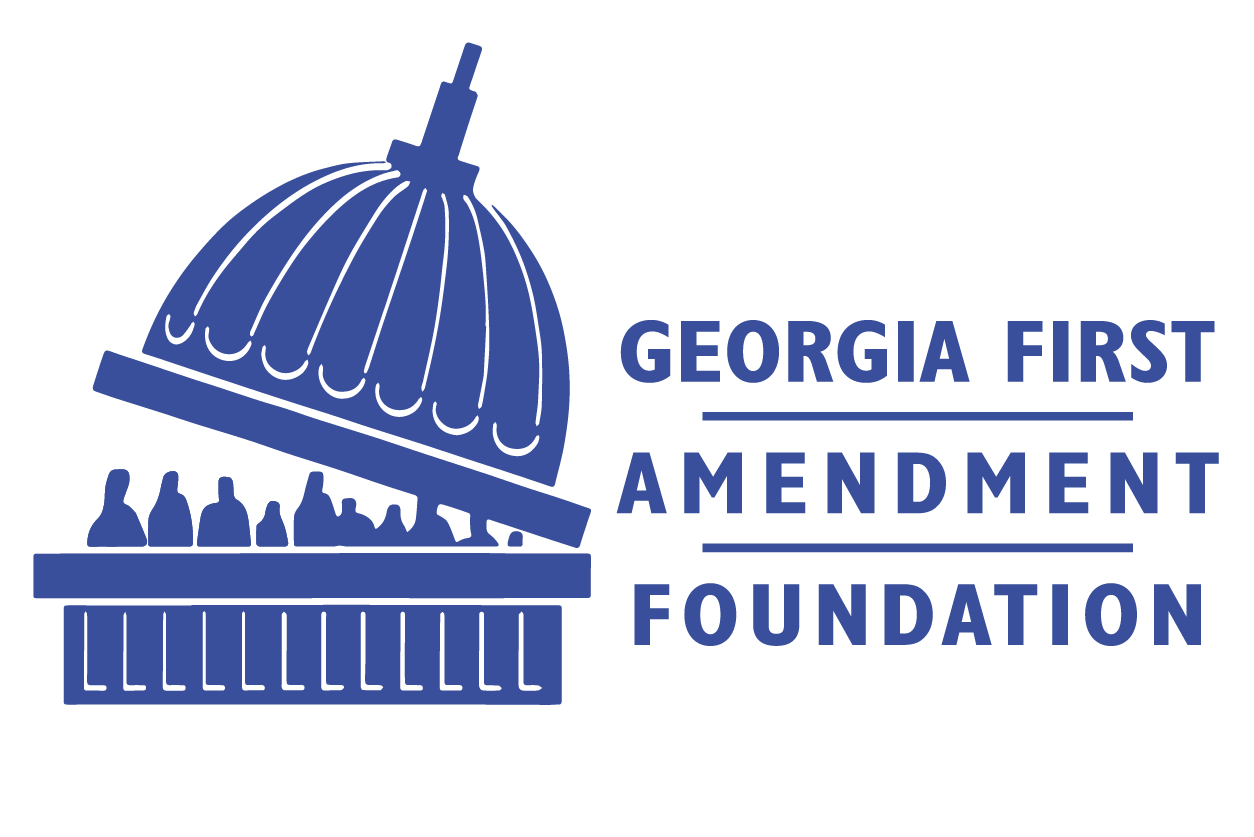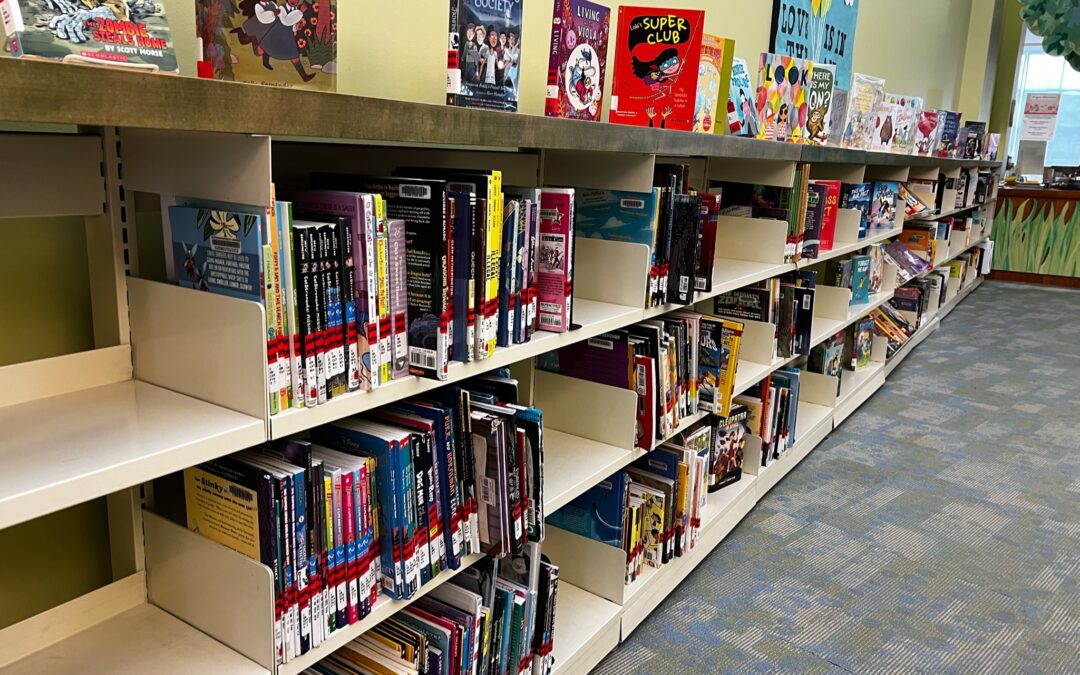The Georgia First Amendment Foundation honors the Georgia Library Media Association’s efforts to safeguard constitutional rights.
Libraries in Georgia schools strive to uphold students’ constitutional right to receive information and to give students opportunities to see themselves in the books on library shelves.
School collections are built by professional librarians who follow well-established materials selection policies that have served the interests of Georgia students, parents and communities successfully for decades. Nonetheless, a push toward book banning in Georgia has created confusion, disruption and division in our communities, and led to flawed state laws that usurp communities’ ability to make local decisions about what is best for their schools.
Censorship crusades have painted educators as villains, contributed to their resignations and made recruiting new teachers and librarians more challenging. It’s getting harder for parents and educators to collaborate to help children learn and grow.
Through it all, the Georgia Library Media Association has spoken up for the constitutional rights of students and educators, pushing back against state laws and district policies that foster censorship in our schools. That’s why the Georgia First Amendment Foundation is honoring the Georgia Library Media Association with our 2023 Open Government Hero award at our upcoming Charles L. Weltner Freedom of Information Celebration, Oct. 26, 2023, at the Emory Conference Center in Atlanta.
GFAF board member John Mack Freeman, a university librarian, talked to GLMA representatives, all educators in Georgia public schools, about censorship trends and possible solutions.
JMF: What is GLMA? And why is it important in the state of Georgia?
Meggan Ford, GLMA president-elect: The Georgia Library Media Association is an all-volunteer professional organization established in 1930. Our goal is to advance school library media specialists’ knowledge about how to build quality education in our schools. We are a state affiliate of the American Association of School Librarians, which is a division of the American Library Association. We provide advocacy resources, professional development and networking to strengthen our libraries to better support students.
JMF: What are some high-profile examples of book banning and censorship in Georgia schools in recent years?
Nan Brown, GLMA advocacy co-chair: The first red flag was Columbia County in 2019. The superintendent removed three novels, saying they were unacceptable and their content was extreme. In 2022, the Forsyth County School System administratively removed eight books from schools. Parents, community members and GLMA members joined a coalition to advocate for clarity and consistency in book approval policies. Ultimately, all but one book was returned to the shelves. In a related action, the U.S. Department of Education investigated whether Forsyth County had created a hostile environment for students based on sex, color, race and national origin. Recent book talks in the district were disrupted after an author told students that someone connected to the story was gay. In August, Cobb County fired a teacher for reading a book she bought at a school book fair. A tribunal selected by the school district recommended that she not be fired, but the school board fired her anyway.
JMF: What’s the process for selecting books, and why do books get challenged?
NB: It’s important for people to understand that school library books are selected through a process that often starts with student requests and leads to professional reviews that consider age relevance and other factors. The book has to be considered as a whole, not a few words or sentences that get read aloud at a school board meeting. A determination of obscenity must align with the Miller test established by a U.S. Supreme Court decision.
JMF: Why is it important to have comprehensive collections in school libraries?
Todd Cates, media specialist and member of the Professional Association of Georgia Educators’ Legislative Action Committee: We have to offer materials that represent all the children in our schools. And despite pushback from certain groups of people, there are kids who are questioning who they are in elementary school. Does that mean we have to turn our entire catalog over to books that represent them? No. But it’s important that all kids see themselves represented, whether they’re children of color, native children, gay or lesbian, white, or Christian or not Christian. They’re who they are; they should be represented in the literature they see in school. Books give children a sense of belonging. They help them develop empathy.
JMF: What does a successful book challenge process look like?
TC: Respectful communication. Here’s an example: We had a parent complain about a book being taught in a classroom the other day, The Serpent King by Jeff Zentner. And when we actually sat down and talked with the parent, she didn’t really have a problem with the book so much as she was worried that her child was struggling with how dark the book started off. Ultimately, the child made it deeper into the book and wanted to keep going. We just need to be able to have those conversations.
NB: Those in-person or phone conversations with a parent can lead to personalized solutions — everyone may agree that a book may not right for a particular child right now. But the book may be just right for other kids. That’s very different from the blanket challenges that happen in school board meetings, which often feel like public performances.
JMF: What else is currently concerning your members?
NB: Our library media liaison at the Georgia Department of Education retired on July 31, 2023. Members contacted GaDOE over the summer to share how important this position is to continuity of services to students, school librarians and administrators. Our GLMA leadership has contacted GaDOE for information on filling that position, as well as to whom our members and their administrators should direct questions in the interim, with no response. With escalating censorship, this void is deeply felt now.
JMF: What’s your advice to people who are interested in learning more about these issues?
MF: Get familiar with the American Library Association’s Library Bill of Rights. Find out how candidates in your area feel about censorship and book banning. Be mindful of legislative bills coming up, and make your voice heard by lawmakers. Show up to your local board of education meeting to understand what’s going on. Talk to your local librarians. Ask what they’re seeing and how it’s affecting their service to your community. Don’t assume that book-banning campaigns are not happening in your community — or won’t happen. Book challenges across the nation nearly doubled last year. The trend toward censorship is real.
>>> Learn more about how Georgia’s book-banning law has normalized censorship in our state.
>>> Explore how lawmakers’ actions reduce local control of our libraries.
>>> Check out what happened in the last Georgia General Assembly session, and watch for 2024 updates starting in January: https://gfaf.org/news/legislative-watch/

